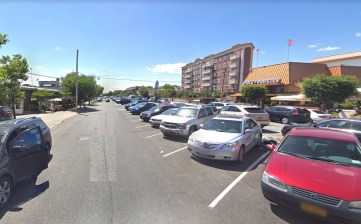Shady Dealings Drive EDC Subsidies for Moisha’s Supermarket Parking Lot

Wondering why the city is subsidizing 18,000 square feet of parking for a project that’s supposed to make fresh food more accessible to low-income New Yorkers? Political favors seem to have something to do with it.
Moisha’s Discount Supermarket is receiving $2 million in tax incentives to expand its operations and build parking for 45 cars under the FRESH program, intended to bring fruits and vegetables into underserved neighborhoods. But according to a report in the Daily News, there are 10 markets within five blocks of Moisha’s and all of them sell fresh produce. The News points to $41,690 in donations from Moisha’s owners to local politicians as an alternative explanation for Moisha’s tax breaks.
An article in City Hall News, which has been taken off their website (we’re looking into why), suggests more direct impropriety. They report that the district manager of Brooklyn Community Board 12 testified to the city’s Industrial Development Agency that his board was completely behind the Moisha’s expansion. But a member of CB12 said the board had never discussed the issue. The district manager and Moisha’s owners are reported to have close ties to Assembly member and local power broker Dov Hikind.

All too often, political patronage is what determines how much parking New York City decides to build. From the city’s decision to give more parking to the Yankees in return for a luxury suite in left field to the Finance Department’s overruling of rank-and-file assessors to grant a politically-connected Jamaica parking operator non-profit status and millions in tax exemptions, too much of the city’s mushrooming parking supply is built and subsidized because of sweetheart deals.
Even when political favors aren’t at work, however, it’s usually still politics that determines how much parking gets built, not any kind of thinking about transportation policy. Parking is routinely thrown in as a “sweetener” for new development, something that a developer or the city can offer a neighborhood to accept growth.
It’s exceedingly rare for parking decisions to be made on the grounds of how much more traffic a garage will induce or how much air pollution it will add. No wonder the city keeps building acre after acre of it.

